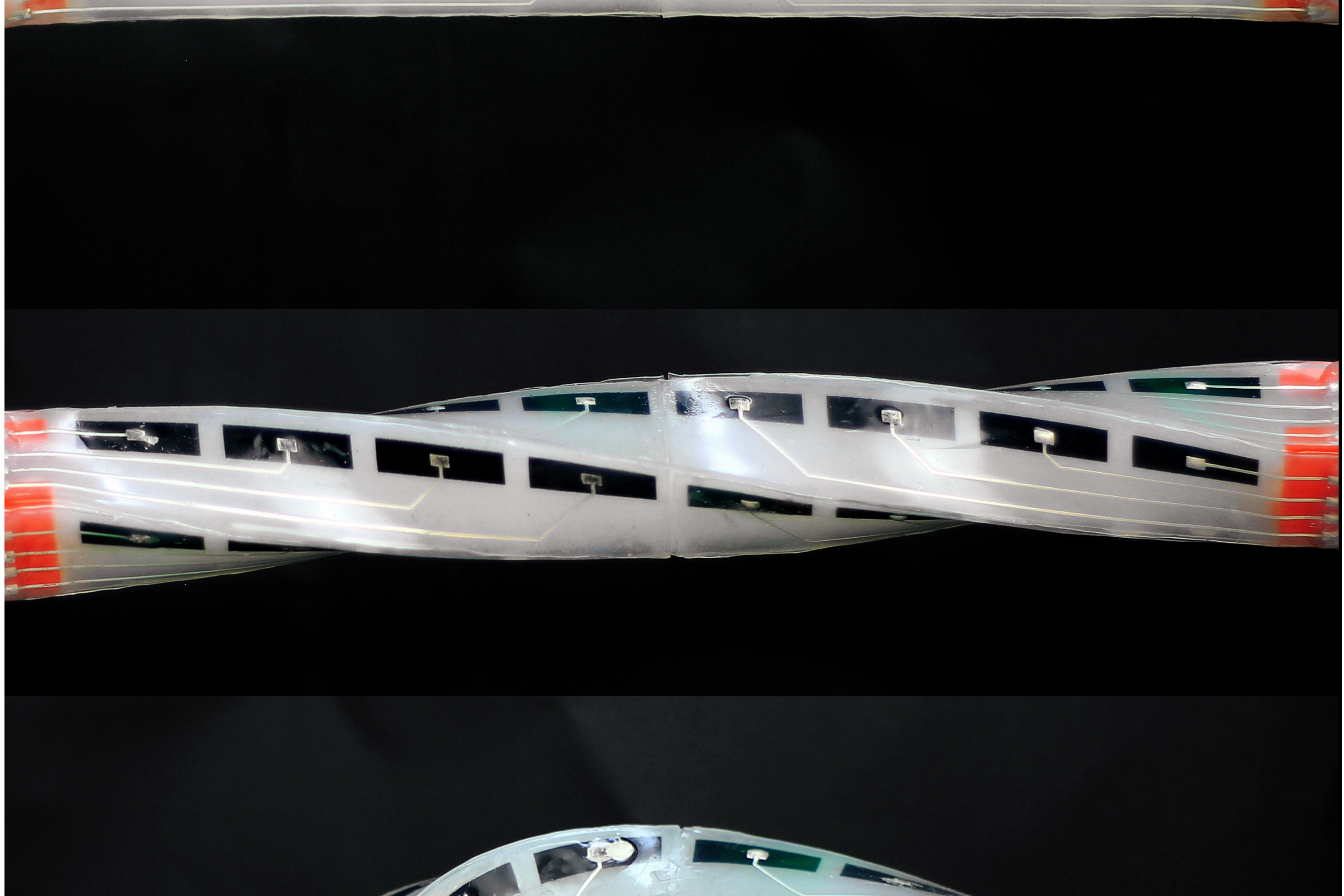E-skin developed to boost self-awareness in soft robots
A team from the University of Edinburgh has described it as a technological breakthrough.

Your support helps us to tell the story
As your White House correspondent, I ask the tough questions and seek the answers that matter.
Your support enables me to be in the room, pressing for transparency and accountability. Without your contributions, we wouldn't have the resources to challenge those in power.
Your donation makes it possible for us to keep doing this important work, keeping you informed every step of the way to the November election

Andrew Feinberg
White House Correspondent
A team of scientists has developed electronic skin that could pave the way for flexible robotic devices to assist with surgical procedures or aid people’s mobility.
The stretchable e-skin, developed at the University of Edinburgh, is used on soft robots to provide them, for the first time, with a level of physical self-awareness similar to that of people and animals.
The technology could aid breakthroughs in soft robotics by enabling devices to detect precisely their movement in the most sensitive of surroundings, experts say.
Soft robots are usually made of pliable materials rather than metal or plastic, and e-skin could have a range of applications, including in surgical tools, prosthetics and devices to explore hazardous environments.
Ultimately, that means we are now closer to making some of the most exciting ideas in soft robotics a reality
Dr Yunjie Yang, of the university’s School of Engineering, who led the study, said: “The perceptive senses endowed to robotic devices by this new technology are similar to those of people and animals.
“This new level of physical self-awareness represents a step-change in the sensing capabilities of soft robots.”
Unlike traditional robots, which have a set range of movements, soft robots are flexible.
This poses a major challenge to developing the sensing systems that are essential for robots to carry out precise tasks and interact safely with people and the environment, researchers say.
Without e-skin, it is hard for soft robots to understand their own motion and shape, and how these qualities interact with their environment.
The University of Edinburgh team is the first to develop technology that overcomes this problem and provides soft robots with highly accurate, real-time sensing abilities.The team tested the e-skin by fitting it to a soft robot arm. They found the technology was able to sense a range of complex bending, stretching and twisting movements across every part of the device.
The study, published in the journal Nature Machine Intelligence, also involved the University of Hong Kong.
Study co-leader Dr Francesco Giorgio-Serchi, also of the School of Engineering, said: “The flexibility of the technology we have developed means it could be applied to various soft robots to enable them to accurately perceive their own shape and movements.
“Ultimately, that means we are now closer to making some of the most exciting ideas in soft robotics a reality.”
Subscribe to Independent Premium to bookmark this article
Want to bookmark your favourite articles and stories to read or reference later? Start your Independent Premium subscription today.